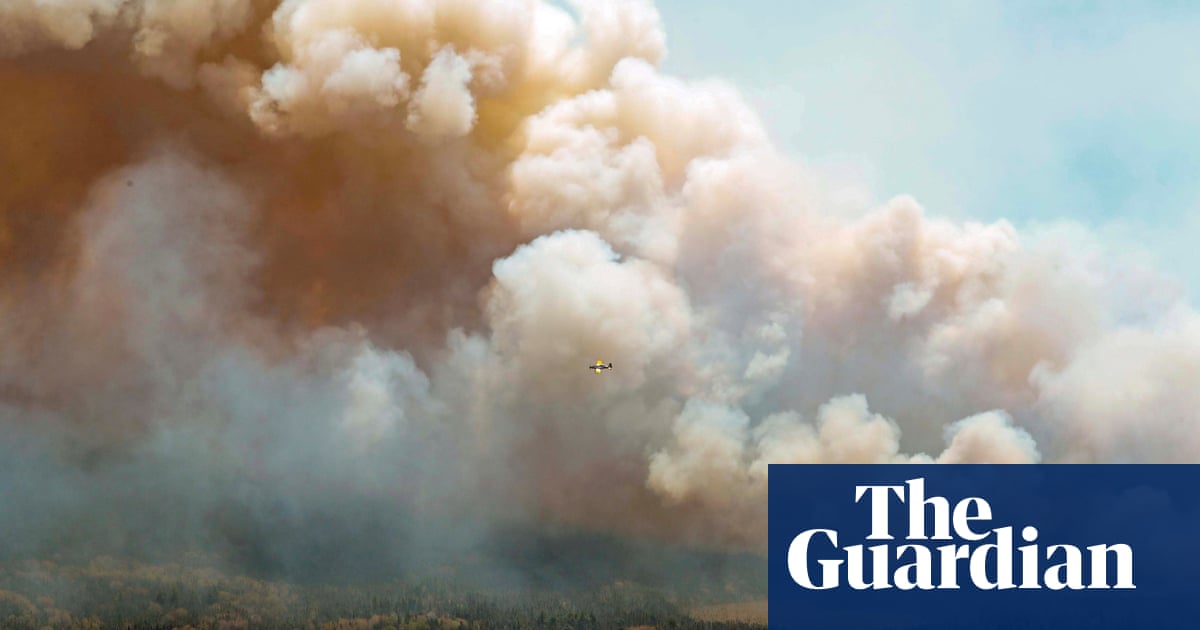
A man from Nova Scotia has been accused of causing the biggest wildfire in the eastern Canadian province.
Dalton Clark Stewart, 22, is facing charges following a Quebec man’s recent guilty plea for starting 14 arson fires in the forest. The Quebec man was motivated by conspiracy theories.
Stewart, a resident of Villagedale, has been charged with three offenses under the Forests Act of the province. These include starting a fire on privately owned land without the owner’s or occupier’s consent, not taking appropriate measures to contain the fire, and leaving the fire unattended.
Individuals found guilty under the Forests Act may receive a penalty of up to C$50,000 (equivalent to US$37,000) and could potentially serve a maximum of six months in jail.
The natural resources department of Nova Scotia stated that the court will decide the consequences of the charges, which may include penalties.
In May, authorities became aware of a wildfire near Barrington Lake. Due to unusually dry weather and strong winds, the fire expanded to 23,525 hectares, surpassing a 50-year record and straining Nova Scotia’s limited firefighting capabilities. The fire also caused poor air quality in the surrounding areas, leading Environment Canada to issue a warning for nearby communities.
The Barrington Lake fire in the Atlantic province brought attention to the region’s susceptibility to wildfires, as the province usually measures burned area in hundreds of hectares.
During the month of June, Tim Houston, the premier of Nova Scotia, made a request to the federal government for various resources to assist with fighting fires. These resources included military firefighters, ignition specialists, firefighting equipment such as hoses and foam, as well as trucks and helicopters.
The fire at Barrington Lake was contained after a month of burning and being declared extinguished by fire crews.
In other areas of the province, teams worked urgently to protect houses as distinct fires approached dangerously near to Halifax, the biggest city in the area.
Researchers examined the Tantallon fire, which resulted in the displacement of 18,000 individuals and the loss of almost 150 residences, in order to determine if any legal responsibility could be attributed. According to CBC News, the RCMP stated that their investigation concluded in December and revealed no evidence of negligence or criminal activity as the cause.
However, the natural resources department of the province announced on Thursday that they are still conducting an investigation into the fire. In a statement, they mentioned that although they have gathered significant information, there are strict standards for what can be considered as evidence in a court of law.
The Canadian interagency fire centre reported that in 2023, 6,551 fires destroyed 18,496,057 hectares of land, which was a significant increase from the previous year’s damage of 1,467,976 hectares. In Nova Scotia, this translated to 24,818 hectares burned from 217 fires.
Source: theguardian.com


















